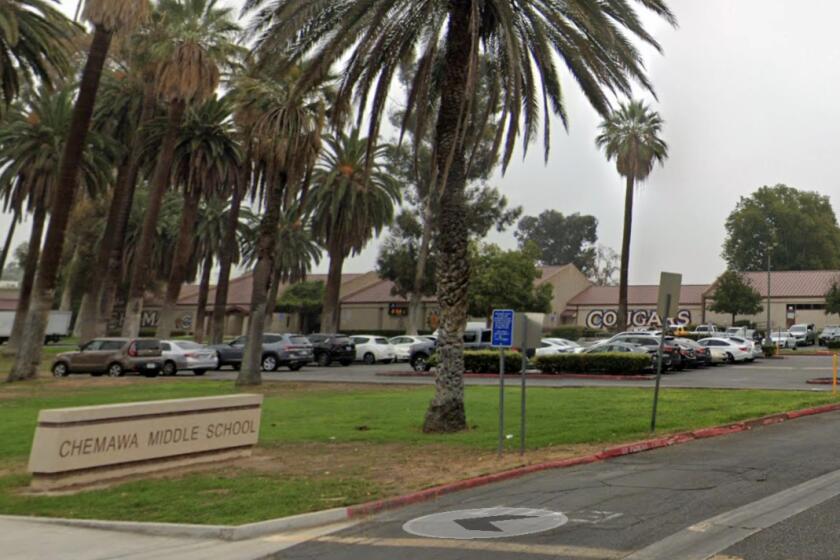UC Berkeley adjusts freshman orientation’s gene-testing program
UC Berkeley announced on Thursday a rollback in its controversial plan for voluntary genetics testing of incoming students, part of an orientation program called “Bring Your Genes to Cal.”
In response to a state Public Health Department ruling on how DNA samples should be handled, UC Berkeley scientists reluctantly abandoned the idea to have freshmen and transfer students individually and confidentially learn about three of their own genetic traits. Instead, only collective results for all the 1,000 or so participants will be available and discussed at the orientation seminars next month.
Mark Schlissel, UC Berkeley’s dean of biological sciences and an architect of the DNA program, said he disagreed with the state Department of Public Health’s ruling that the genetic testing required advance approval from physicians and should be done only by specially-licensed clinical labs, not by university technicians. The campus could not find labs willing to do the work and probably could not afford it anyway, Schlissel said. He also contended that the project deserved an exemption from those rules because it was an educational exercise.
The university offered to test the gene variations that affect people’s reactions to three substances: alcohol, lactose and folic acid. Students were asked to provide the school with a swab of cells from inside the mouth.
Berkeley officials contend that the test results would not be medically significant. But the program was controversial with privacy advocates and ethicists complaining that it presented an unprecedented and disturbing use of genetic data by a university.
The lectures and seminars about genetic testing will take place as planned during the orientation, although some students might not attend when they find out that personal testing results won’t be revealed, Schlissel said. In previous years, the orientation was built around students reading the same book rather than mailing in a saliva sample.
The retreat came two days after the state Assembly Committee on Higher Education held a hearing about the DNA testing. Since the plan was first unveiled in May, critics have been expressing fears that students felt unspoken coercion to participate, and that the saliva samples and resulting personal information were not properly protected. UC Berkeley officials, however, insisted the data would remain confidential.
The committee’s chairman, Assemblyman Marty Block (D- San Diego) on Thursday welcomed the news that individual results would not be revealed. “While I believe the professors behind this project had the best intentions from the start, protecting student privacy and the confidentiality of their health information is critically important,” he said in a statement.
The state Senate Education Committee on Wednesday defeated a bill, sponsored by Assemblyman Chris Norby (R-Fullerton), that would have restricted UC’s and Cal State’s ability to seek students’ DNA.
In a statement issued Thursday, Kevin Reilly, an official at the state Public Health Department, said only licensed laboratories are allowed to perform medical tests on human specimens if the results are to be released to an individual. That rule is “designed to protect the public by ensuring that testing provides accurate and reliable results.” Research testing that does not report individual results are exempt from this requirement, he said.
Privacy activists had called for the entire plan to be cancelled and contended the change proved how ill-prepared the testing idea was.
“It showed a lack of due diligence and consideration,” said Jeremy Gruber, president of the Council for Responsible Genetics, based in Cambridge, Mass. He said he remained concerned about how the genetic samples would be used, despite UC’s pledge to destroy the samples after collecting the results.
The orientation program for UC Berkeley’s College of Letters and Science last month mailed about 5,000 information and testing packets to new students’ homes; if they chose to participate, they were to later learn their results online using anonymous codes. So far, the school has received 700 samples and expects that number to grow to about 1,000, officials said.
larry.gordon@latimes.com
More to Read
Sign up for Essential California
The most important California stories and recommendations in your inbox every morning.
You may occasionally receive promotional content from the Los Angeles Times.











